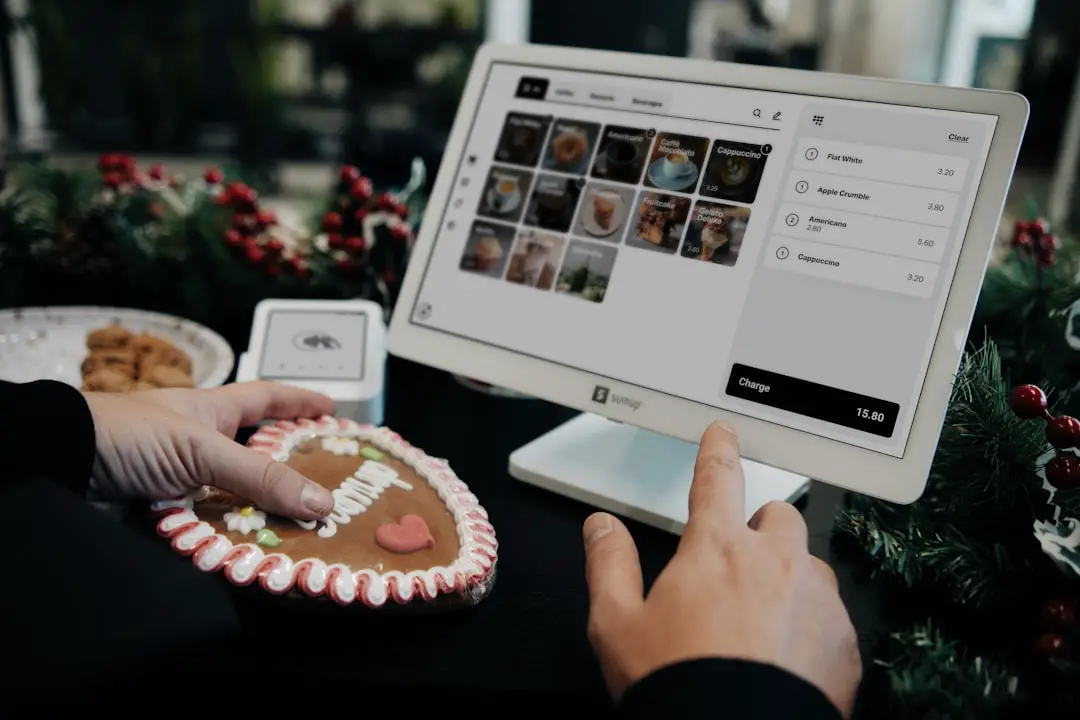In an era where smartphones have become an integral part of daily life, the security of these devices is paramount. The iPhone, developed by Apple Inc., is renowned for its robust security features, which are designed to protect users from unauthorized access and data breaches. Apple’s commitment to privacy and security is evident in its design philosophy, which emphasizes encryption, secure boot processes, and a closed ecosystem that limits the potential for malware.
However, as technology evolves, so do the tactics employed by cybercriminals, making it essential for users to remain vigilant about their device’s security. The iPhone’s security architecture includes features such as Face ID, Touch ID, and end-to-end encryption for iMessages and FaceTime calls. These measures create a formidable barrier against unauthorized access.
Nevertheless, no system is infallible. As hackers develop increasingly sophisticated methods to exploit vulnerabilities, users must be aware of the potential risks and take proactive steps to safeguard their devices. Understanding the landscape of iPhone security is crucial for anyone who relies on their device for personal or professional communication.
Key Takeaways
- iPhone security is essential for protecting personal data and preventing unauthorized access to the device.
- Common methods hackers use to access iPhones include phishing, malware, and exploiting software vulnerabilities.
- Risks of having a compromised iPhone include unauthorized access to personal data, financial theft, and privacy invasion.
- Signs that your iPhone has been hacked may include unusual battery drain, unexpected data usage, and unexplained pop-up ads.
- If you suspect your iPhone has been hacked, you should immediately update your software, change your passwords, and consider restoring your device to factory settings.
- Regular software updates are important for iPhone security as they often contain patches for known vulnerabilities.
- Tips for securing your iPhone against hackers include enabling two-factor authentication, using strong and unique passwords, and being cautious of suspicious links and downloads.
- To protect your personal data on your iPhone, you should regularly back up your device, enable Find My iPhone, and consider using encryption for sensitive information.
- Strong passwords play a crucial role in iPhone security by preventing unauthorized access to the device and personal data.
- Jailbreaking can significantly impact iPhone security by bypassing built-in protections and exposing the device to potential security vulnerabilities.
- Resources for further information on iPhone security and hacking include Apple’s official website, cybersecurity blogs, and online forums dedicated to mobile device security.
Common methods hackers use to access iPhones
Hackers employ a variety of techniques to gain unauthorized access to iPhones, each exploiting different vulnerabilities within the device or its software. One prevalent method is phishing, where attackers send deceptive messages or emails that appear legitimate, tricking users into revealing their Apple ID credentials or other sensitive information. These phishing attempts can be highly sophisticated, often mimicking official communications from Apple or other trusted entities.
Once a hacker obtains login credentials, they can access personal data, make unauthorized purchases, or even lock the user out of their account. Another common tactic is the use of malicious software or malware. While iOS is generally considered more secure than other operating systems, it is not immune to malware attacks.
Hackers may create apps that appear harmless but contain hidden malicious code designed to steal data or track user activity. Additionally, vulnerabilities in third-party applications can be exploited to gain access to the device. For instance, if a user downloads an app from an unverified source, they may inadvertently install malware that compromises their device’s security.
Risks of having a compromised iPhone

The risks associated with a compromised iPhone are significant and can have far-reaching consequences for users. One of the most immediate dangers is the potential loss of personal data. Hackers who gain access to an iPhone can steal sensitive information such as contacts, photos, messages, and financial details.
This data can be used for identity theft or sold on the dark web, leading to financial loss and reputational damage for the victim. Moreover, a compromised iPhone can serve as a gateway for further attacks. Once hackers infiltrate a device, they may use it as a launching pad to target other accounts linked to the user, such as email or social media profiles.
This interconnectedness means that a single breach can have cascading effects across multiple platforms. Additionally, compromised devices can be used to spread malware to other users through shared networks or messaging apps, amplifying the impact of the initial breach.
Signs that your iPhone has been hacked
| Signs of iPhone Hacking |
|---|
| Unusual battery drain |
| Increased data usage |
| Unexplained charges on your bill |
| Slow performance |
| Unexpected pop-up ads |
| Unexplained apps on your phone |
| Strange activity on social media accounts |
Detecting whether an iPhone has been hacked can be challenging, as many signs may not be immediately apparent. However, there are several indicators that users should be aware of. One common sign is unusual behavior from the device itself.
This may include unexpected crashes, apps opening or closing without user input, or a significant decrease in battery life. Such anomalies can suggest that malicious software is running in the background or that unauthorized access has occurred. Another red flag is the presence of unfamiliar apps on the device.
If a user notices applications they did not download or install appearing on their home screen, it could indicate that their device has been compromised. Additionally, users should monitor their accounts for any unauthorized transactions or changes in settings that they did not initiate. If notifications from Apple regarding password changes or login attempts from unfamiliar locations start appearing, it is crucial to take immediate action to secure the account.
Steps to take if you suspect your iPhone has been hacked
If you suspect that your iPhone has been hacked, it is essential to act quickly to mitigate potential damage. The first step is to disconnect from any Wi-Fi networks and turn off mobile data to prevent further unauthorized access. This action can help isolate the device and limit the hacker’s ability to extract additional information or control the device remotely.
Next, users should change their Apple ID password immediately. This step will help secure their account and prevent unauthorized access to personal data stored in iCloud or linked services. It is also advisable to enable two-factor authentication (2FA) if it is not already activated.
2FA adds an extra layer of security by requiring a verification code sent to a trusted device before allowing access to the account. After securing accounts and passwords, users should consider restoring their iPhone to factory settings. This process will erase all data and applications from the device, effectively removing any malicious software that may have been installed.
However, it is crucial to back up important data before proceeding with this step, as restoring will result in permanent data loss.
Importance of regular software updates for iPhone security

Regular software updates are a cornerstone of maintaining iPhone security. Apple frequently releases updates that address vulnerabilities and enhance the overall security framework of its devices. These updates often include patches for known exploits that hackers may attempt to leverage.
By keeping their devices updated with the latest software versions, users can significantly reduce their risk of falling victim to cyberattacks. In addition to security patches, software updates often introduce new features and improvements that enhance user experience and functionality. For instance, updates may include enhancements to privacy settings or new tools for managing app permissions.
By regularly updating their devices, users not only protect themselves from potential threats but also benefit from the latest advancements in technology and security practices.
Tips for securing your iPhone against hackers
Securing an iPhone against potential hacking attempts requires a proactive approach and adherence to best practices in digital hygiene. One fundamental tip is to use strong and unique passwords for all accounts associated with the device. Passwords should be complex, incorporating a mix of letters, numbers, and special characters.
Additionally, users should avoid using easily guessable information such as birthdays or common words. Another effective strategy is to limit app permissions and only grant access when necessary. Many applications request permissions that may not be essential for their functionality.
Users should regularly review app permissions in the settings menu and revoke access for apps that do not require certain permissions to operate effectively. This practice minimizes the amount of personal data accessible to third-party applications. Enabling features such as Find My iPhone can also enhance security by allowing users to track their device’s location and remotely lock or erase it if lost or stolen.
Furthermore, utilizing a VPN (Virtual Private Network) when connecting to public Wi-Fi networks adds an additional layer of encryption and privacy protection against potential eavesdropping by malicious actors.
How to protect your personal data on your iPhone
Protecting personal data on an iPhone involves a combination of settings adjustments and mindful usage practices. One effective method is to enable encryption features available on the device. By default, iPhones encrypt data stored on the device when a passcode is set.
Users should ensure that they have enabled this feature by setting a strong passcode that meets Apple’s security requirements. Additionally, users should be cautious about sharing personal information online and limit what they post on social media platforms. Cybercriminals often gather information from social media profiles to craft targeted phishing attacks or social engineering schemes.
Being mindful of privacy settings on social media accounts can help mitigate this risk. Regularly reviewing account activity for any suspicious behavior is also crucial in protecting personal data. Users should check their bank statements and online accounts frequently for unauthorized transactions or changes in account settings.
If any discrepancies are found, immediate action should be taken to secure those accounts.
The role of strong passwords in iPhone security
Strong passwords play a vital role in safeguarding an iPhone against unauthorized access and cyber threats. A strong password acts as the first line of defense against hackers attempting to breach accounts or gain control over devices. Passwords should ideally be at least 12 characters long and include a combination of uppercase letters, lowercase letters, numbers, and special characters.
Using unique passwords for different accounts is equally important; reusing passwords across multiple platforms increases vulnerability if one account is compromised. Password managers can assist users in generating and storing complex passwords securely without the need to remember each one individually. By employing strong password practices, users significantly reduce their risk of falling victim to hacking attempts.
Moreover, enabling biometric authentication methods such as Face ID or Touch ID adds an additional layer of security beyond traditional passwords. These biometric features require physical attributes unique to the user for access, making it considerably more difficult for unauthorized individuals to gain entry into the device.
The potential impact of jailbreaking on iPhone security
Jailbreaking an iPhone involves removing software restrictions imposed by Apple, allowing users to install applications and tweaks not available through the official App Store. While this process may offer increased customization options and access to additional features, it significantly compromises the device’s security framework. Once an iPhone is jailbroken, it becomes more susceptible to malware and hacking attempts due to the removal of built-in security measures designed by Apple.
Jailbroken devices often lack critical updates and patches that protect against known vulnerabilities, leaving them exposed to potential threats from malicious software. Furthermore, many third-party applications available through unofficial sources may not undergo rigorous security checks like those in the App Store. This lack of oversight increases the risk of inadvertently installing harmful software that could compromise personal data or lead to unauthorized access.
Resources for further information on iPhone security and hacking
For individuals seeking more information on iPhone security and best practices for protecting their devices from hacking attempts, numerous resources are available online. Apple’s official website provides comprehensive guides on securing devices and understanding privacy settings within iOS. The “Apple Support” section offers articles detailing how to manage passwords, enable two-factor authentication, and recognize phishing attempts.
Additionally, cybersecurity organizations such as the Cybersecurity & Infrastructure Security Agency (CISA) offer valuable insights into current threats and preventive measures users can take to enhance their digital safety. Online forums and communities dedicated to cybersecurity discussions can also provide real-time advice from experts and fellow users who share similar concerns about device security. Books focused on cybersecurity principles can further deepen understanding of how hackers operate and what strategies can be employed to safeguard personal information effectively.
By leveraging these resources, users can stay informed about emerging threats and adopt best practices for maintaining robust iPhone security in an increasingly digital world.
There have been concerns about the security of iPhones and whether hackers can gain access to them. According to a recent article on getiphoneinfo.com, there are potential vulnerabilities that hackers could exploit to hack into your iPhone. It is important to stay informed and take necessary precautions to protect your device from potential cyber threats. For more information on iPhone security, you can visit getiphoneinfo.com/contact/ or read their terms and conditions at getiphoneinfo.com/terms-and-conditions/.
FAQs
What is iPhone hacking?
iPhone hacking refers to the unauthorized access and manipulation of an iPhone’s software or hardware in order to gain control over the device, access sensitive information, or install malicious software.
Can hackers hack into an iPhone?
Yes, hackers can potentially hack into an iPhone using various methods such as exploiting software vulnerabilities, using phishing attacks, or through physical access to the device.
How can I protect my iPhone from hackers?
To protect your iPhone from hackers, you can take several precautions such as keeping your device’s software up to date, using strong and unique passwords, enabling two-factor authentication, avoiding suspicious links and downloads, and using a reputable security app.
What are the potential risks of iPhone hacking?
The potential risks of iPhone hacking include unauthorized access to personal and sensitive information, financial theft, identity theft, installation of malware or spyware, and compromise of the device’s security and privacy.
Can hackers remotely access an iPhone?
Yes, hackers can remotely access an iPhone through methods such as exploiting software vulnerabilities, using phishing attacks, or by tricking the user into installing malicious software.
Is it possible to detect if my iPhone has been hacked?
It can be difficult to detect if your iPhone has been hacked, but some signs of a hacked iPhone may include unusual battery drain, unexpected data usage, unexplained charges, and strange behavior such as apps crashing or the device overheating. If you suspect your iPhone has been hacked, it’s important to seek professional assistance.










